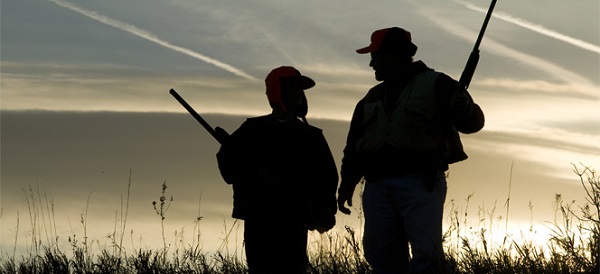Justice
Ottawa’s gun buyback is rightly falling apart

From the Canadian Taxpayers Federation
Author: Gage Haubrich
Prime Minister Justin Trudeau’s gun ban and buyback policy is running out of steam.
And it hasn’t even left the station.
The buyback is broken. Law-abiding firearms owners don’t want to lose their guns. It doesn’t go far enough for gun-control advocates. And taxpayers don’t want to pick up the massive bill.
“It’s a waste of Canadian’s money,” said a spokesperson for PolyRemembers, a prominent gun-control advocacy group. “We are not reducing the risk level. It’s just for appearances.”
Instead, PolyRemembers wants the government to go further and ban even more models of firearms.
But if the recommendation is to ban more guns, the solution brings a lot more problems.
And Ottawa already tried that. The federal government tried to dramatically expand the list of guns banned with committee amendments. One of the additions included the semi-automatic SKS rifle, of which there are estimated to be more than 500,000 in Canada.
After the introduction of amendments to Bill C-21 that would have seen many common hunting rifles banned, the Assembly of First Nations passed an emergency resolution opposing the ban.
“It’s a tool,” said Kitigan Zibi Chief Dylan Whiteduck about the list of rifles to be banned. “It’s not a weapon.”
“No government has a right to take that away from us and regulate that,” said said Federation of Sovereign Indigenous Nations Vice-Chief Heather Bear. “That is our job as mothers, grandmothers, grandfathers, and hunters
The government backed down and removed the amendments.
Expanding the buyback to include even more firearms would mean more resistance from current firearms owners and a larger cost to buyback even more guns.
The government says the aim of the ban is to keep Canadians safe, but the evidence shows that it’s unlikely to help, even if it was expanded to include more firearms.
The federal government announced a ban on 1,500 types of what it called “assault-style” firearms in May 2020. It promised to provide “fair compensation” to gun owners whose firearms it confiscates.
New Zealand tried a gun ban and buyback program that was more far reaching than Ottawa’s, banning almost all semi-automatic firearms, not only so-called “assault style” rifles.
It didn’t work.
During the decade before the buyback, according to data from the New Zealand Police, violent firearm offences averaged 932 a year in New Zealand. In 2019, the year of the buyback, there were 1,142 offences. In 2022, the number of offences was 1,444.
New Zealand’s buyback wasn’t cheap either. Costs to administer the program were more than double the initial estimates.
Experts in Canada have seen enough to know the policy is a failure.
The National Police Federation, the union that represents the RCMP, says Ottawa’s buyback, “diverts extremely important personnel, resources, and funding away from addressing the more immediate and growing threat of criminal use of illegal firearms.”
And it’s a lot of funding and resources.
In total, estimates show that Trudeau’s scheme could cost taxpayers up to $756 million to buyback the guns, according to the Parliamentary Budget Officer. That doesn’t even include the administration costs – it’s just the cost of compensating firearms owners.
Instead of taking away firearms from Canadians, that’s enough money to pay for the average salaries of 1,000 police officers for more than seven years.
The government has a history of ballooning costs for these types of programs. The government initially promised the long-gun registry would cost taxpayers only $2 million. The final tab was over $2 billion. The registry was scrapped by the Harper government and stayed scrapped under the Trudeau government.
If those were the overruns just to register the guns, how much money would the federal government waste trying to confiscate them?
Ottawa’s buyback has already cost taxpayers $67 million since 2020. Not a single gun has been “bought back” yet.
It’s time for Ottawa to cancel its gun ban and buyback. Because right now, all it looks set to do is cost taxpayers a boatload of money without making Canadians safer.
Censorship Industrial Complex
Legal warning sent to Ontario school board for suspending elected school council member

The Justice Centre for Constitutional Freedoms announces that a legal warning letter has been sent to the Hamilton-Wentworth District School Board after it suspended a parent from her role on the School Council for respectfully objecting to land acknowledgements.
Catherine Kronas, a concerned parent with a child enrolled at Ancaster High Secondary School, was re-elected to serve on School Council in October 2024.
During a Council meeting on April 9, 2025, Ms. Kronas asked that her respectful objection to land acknowledgements be noted in the minutes. No disruption occurred; her comments were limited to requesting that her dissenting viewpoint be recorded.
On May 22, 2025, however, the School Board informed Ms. Kronas that her involvement on the Council was being “paused” based on allegations that she had caused harm and had violated a Code of Conduct Policy. She has not been permitted to attend the next scheduled meeting.
Ms. Kronas was unsettled by the Board’s decision, saying, “I was taken aback by the Board’s decision to suspend me from the School Council after delivering a respectful objection, especially given assurances made at a previous council meeting and outlined in the Council bylaws that open dialogue and diverse perspectives are welcomed.”
“By barring me from the next meeting, the Council sends a troubling message to all parents: that even respectful disagreement may be met not with dialogue, but with disciplinary action. I am grateful to the Justice Centre for Constitutional Freedoms for assisting me in this matter,” she remarked.
Constitutional lawyer Hatim Kheir said Ms. Kronas’ comments “were a reasonable and measured expression of a viewpoint held by many Canadians.”
“The Board’s decision to suspend her from the Council, which she has a right to sit on as an elected parent member, is an act of censorship that offends the right to freedom of expression,” he explained.
Mr. Kheir is calling for Ms. Kronas to be immediately reinstated to the Council and to be allowed to fulfill her elected role without further retaliation for expressing her views.
To view a brief video summary of this matter, click here.
To receive regular updates from the Justice Centre, click on this link to join our email list.
Alberta
Red Deer Justice Centre Grand Opening: Building access to justice for Albertans

The new Red Deer Justice Centre will help Albertans resolve their legal matters faster.
Albertans deserve to have access to a fair, accessible and transparent justice system. Modernizing Alberta’s courthouse infrastructure will help make sure Alberta’s justice system runs efficiently and meets the needs of the province’s growing population.
Alberta’s government has invested $191 million to build the new Red Deer Justice Centre, increasing the number of courtrooms from eight to 12, allowing more cases to be heard at one time.
“Modern, accessible courthouses and streamlined services not only strengthen our justice
system – they build safer, stronger communities across the province. Investing in the new Red Deer Justice Centre is vital to helping our justice system operate more efficiently, and will give people in Red Deer and across central Alberta better access to justice.”

Government of Alberta and Judiciary representatives with special guests at the Red Deer Justice Centre plaque unveiling event April 22, 2025.
On March 3, all court services in Red Deer began operating out of the new justice centre. The new justice centre has 12 courtrooms fully built and equipped with video-conference equipment to allow witnesses to attend remotely if they cannot travel, and vulnerable witnesses to testify from outside the courtroom.
The new justice centre also has spaces for people taking alternative approaches to the traditional courtroom trial process, with the three new suites for judicial dispute resolution services, a specific suite for other dispute resolution services, such as family mediation and civil mediation, and a new Indigenous courtroom with dedicated venting for smudging purposes.
“We are very excited about this new courthouse for central Alberta. Investing in the places where people seek justice shows respect for the rights of all Albertans. The Red Deer Justice Centre fills a significant infrastructure need for this rapidly growing part of the province. It is also an important symbol of the rule of law, meaning that none of us are above the law, and there is an independent judiciary to decide disputes. This is essential for a healthy functioning democracy.”
“Public safety and access to justice go hand in hand. With this investment in the new Red Deer Justice Centre, Alberta’s government is ensuring that communities are safer, legal matters are resolved more efficiently and all Albertans get the support they need.”
“This state-of-the-art facility will serve the people of Red Deer and surrounding communities for generations. Our team at Infrastructure is incredibly proud of the work done to plan, design and build this project. I want to thank everyone, at all levels, who helped make this project a reality.”
Budget 2025 is meeting the challenge faced by Alberta with continued investments in education and health, lower taxes for families and a focus on the economy.

Quick facts
- The new Red Deer Justice Centre is 312,000 sq ft (29,000 m2). (The old courthouse is 98,780 sq ft (9,177 m2)).
- The approved project funding for the Red Deer Justice Centre is about $191 million.
-

 Business1 day ago
Business1 day agoCarney government should apply lessons from 1990s in spending review
-

 Business1 day ago
Business1 day agoTrump to impose 30% tariff on EU, Mexico
-

 illegal immigration2 days ago
illegal immigration2 days agoICE raids California pot farm, uncovers illegal aliens and child labor
-

 Entertainment1 day ago
Entertainment1 day agoStudy finds 99% of late-night TV guests in 2025 have been liberal
-

 Energy1 day ago
Energy1 day agoLNG Export Marks Beginning Of Canadian Energy Independence
-

 Frontier Centre for Public Policy13 hours ago
Frontier Centre for Public Policy13 hours agoCanada’s New Border Bill Spies On You, Not The Bad Guys
-

 Uncategorized13 hours ago
Uncategorized13 hours agoCNN’s Shock Climate Polling Data Reinforces Trump’s Energy Agenda
-

 Opinion6 hours ago
Opinion6 hours agoPreston Manning: Three Wise Men from the East, Again



